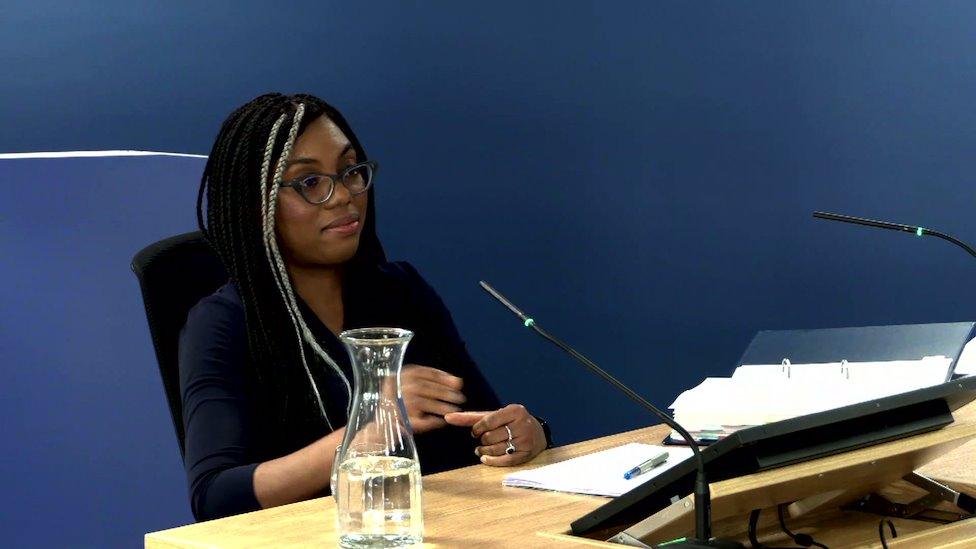Covid: Lack of trust in government adversely affected minorities - Badenoch
- Published

Kemi Badenoch was giving evidence about her time as Minister of Equalities
Misinformation and a lack of trust made it harder to reach minority communities during the pandemic, Business Secretary Kemi Badenoch told the Covid inquiry.
People from ethnic minority backgrounds were both more likely to catch Covid and die of it in 2020 and 2021, Office for National Statistics figures showed.
Ms Badenoch, equalities minister at the time, said the government was not trusted by some in these communities.
"Lots of conspiracy theories" came up in her family WhatsApp group, she said.
"The government cannot get into my family WhatsApp group. There are some channels which you cannot break into in the information age that we live in," she added.
Ms Badenoch added that "within ethnic minority populations there is a very high level of first-generation immigrants who come from countries where people don't trust the government, and there is no reason to assume that just because the government is saying something, that they will take it as verifiable information that they have to act on".
Ms Badenoch later said that misinformation was an ongoing problem for the government.
"Even as a constituency MP, the number of people who come up to me in the street and tell me that I am part of a grand conspiracy to infect them, and 'so-and-so died' because of the material that we were putting out," she said.
"I don't think government has got a handle on dealing with misinformation. I don't think that we have adapted to this age of social media, where information travels at lightning speed across the world."

More on Covid and the Covid Inquiry

'Lumping people in together'
Earlier in her evidence, Ms Badenoch also said that the term BAME - an acronym standing for black, Asian and minority ethnic - had actually hindered the government's ability to work out why ethnic minority groups were being hit harder.
BAME is no longer recommended terminology.
While the term was common in early 2020, by the end of 2021 the government, corporations, and broadcasters - including the BBC - had announced they would no longer use it.
"Using the term BAME masked what was actually happening within different ethnicities. By lumping people who are black with people who are Asian - very different groups of people - it made it harder to actually look at the underlying factors," Ms Badenoch said.
"Lumping people into one group completely obscures different bits of information, which we were then able to single out once we started splitting groups apart.
"What BAME basically does is summarise anyone who is not white. From a health perspective, or even just from any sort of analysis perspective, that's not particularly helpful."
Related topics
- Published5 October 2023

- Published22 November 2023
